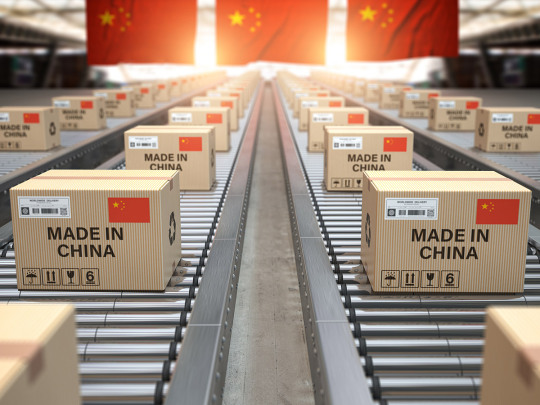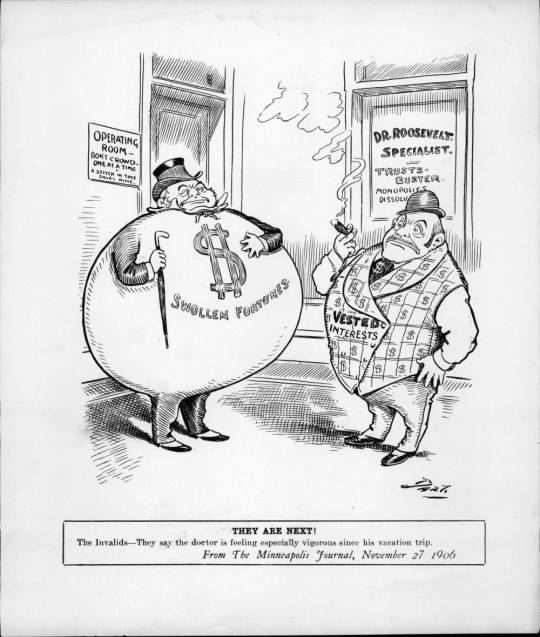#antitrust law
Text
#tiktok#apple#anti trust#anti trust lawsuit#antitrust law#lawsuit#monopoly#capitalism is the worst#capitalism is evil#capitalism kills#capitalism#anti capitalist#capitalist hell#capitalist dystopia#capitalist bullshit#capitalism is hell#capitalism is a scam#capitalism is a disease#us govt#us government#federal government#department of justice
32 notes
·
View notes
Text
Antitrust and Trade Regulations Law Firms in India

How to Get Around Antitrust and Trade Regulations in Your Business
When you launch your business, the last thing you probably think about is the regulations that apply to your new venture. But, trust us when we say it’s a good idea to have some kind of understanding of what these regulations are and how they might affect you. If your business sells goods or services with a broad market, it’s more than likely that there are some rules in place to protect competitors and prevent market dominance. The same goes for companies operating within specific industries like media, pharmaceuticals and retail, there are often antitrust laws that restrict certain businesses from dominating the market or monopolising their sector.
Not sure where these laws might be applicable or how they could affect your company? Keep reading,
you might be surprised by just how much good information you get from this article about Antitrust and Trade Regulation Law!
What is Antitrust?
Antitrust laws are meant to ensure competition in the marketplace and ensure that businesses don’t gain an unfair advantage over their competitors, they are intended to prevent monopolies and anti-competitive behaviours. The Federal Trade Commission (FTC), the government entity responsible for enforcing these laws, has issued numerous guides and publications to help businesses understand the basics of this area of regulation. These laws vary from country to country, so it’s important to understand how they apply to your business and what can constitute anti competitive behaviour. It’s also critical to keep in mind that many of these laws are focused on protecting consumers. For this reason, extensions like data use and sharing, privacy and security, and customer service are all important areas to be mindful of.
How Trade Regulations Affect Businesses
Many companies are familiar with antitrust laws because they are often encountered as competitors in other industries. But, these regulations also apply to businesses that do business with other businesses. In other words, if your company imports goods from another country, it may be subject to the same kind of regulations that protect competitors from monopolies that apply to domestic businesses. The same goes for companies operating within specific industries like media, pharmaceuticals and retail, there are often antitrust laws that restrict certain businesses from dominating the market or monopolising their sector.
Differences Between Antitrust and Trade Regulations
Because antitrust laws are meant to protect competition within an industry and trade regulations are meant to protect and defend the rights of another country’s businesses, it’s important to note the key differences between these two types of regulation. Antitrust laws are generally aimed at preventing monopolies in an industry and making sure that competition is maintained. Trade regulations, on the other hand, are generally intended to protect the rights of another country’s businesses to do business and are therefore often less focused on protecting consumers from anti-competitive practices.
Strategies for Overcoming Trade Regulation Hurdles
The good news is that, even if your business is operating within an industry that is subject to trade regulations, there are still options to consider. The first and most important thing you can do is conduct thorough research on the regulations that apply to your business. You should also consider hiring an attorney who specialises in trade regulations to help you understand the implications of your compliance efforts. An attorney can also help you navigate potential regulatory issues more easily. As you conduct your research and plan your compliance, you should keep in mind that trade regulations can be challenging to navigate. These regulations are often complex and often differ from country to country. The best way to make sure you don’t violate these regulations is to be knowledgeable about them. You can do this by thoroughly reading applicable guides and publications, as well as consulting with an attorney who specialises in trade regulations.
The Bottom Line
Many businesses operate within industries that are subject to trade regulations, like pharmaceuticals and media, as well as antitrust laws. The good news is that there are ways to navigate and adapt to these regulations and establish a strong compliance program. The first step is to conduct thorough research on the regulations that apply to your business and hire an attorney who specialises in trade regulations.
#Antitrust Law#Trade Regulations Law#Antitrust and Trade Regulations Law#advocate amit suden#amit suden#corporate lawyer#best corporate lawyer in india
2 notes
·
View notes
Photo

Discrimination By Act Of Congress
August 25, 1906
The Standard Oil System businessman heads to the entrance of the Grand Frank and Rebate R.R. He is labelled “A Common Carrier - By act of Congress.” He carries a Free R.R. ticket in his hat, and walks by a sign reading “N.B. Common Carriers may grant free transportation to Common Carriers - Act of Congress”
A man with a coal hod, representing competing business interests, stands aside.
The caption reads "The Man with the Hod - ‘Now I suppose the trouble with me is that I'm too durn common a carrier.’"
By one possible interpretation of the new Railroad Rate law, any employee of Standard Oil could ride railroads for free.
From Hennepin County Library
Original available at: https://digitalcollections.hclib.org/digital/collection/Bart/id/6772/rec/222
#Charles Bartholomew#political cartoon#Standard Oil#Railroads#common carrier#Antitrust Law#american history
2 notes
·
View notes
Text
Navigating Complex Legal Landscapes with LDM Global's Expertise in U.S. Legal Consulting

Introduction
LDM Global is an esteemed name within the legal consulting industry, offering innovative and strategic solutions to clients across various sectors in the United States. With its unwavering commitment to excellence and expertise, this firm has emerged as a trusted partner for organizations seeking guidance through intricate legal landscapes. In this article, we delve into the world of LDM Global's legal consulting services in the USA, highlighting their unique approach, areas of specialization, and impactful case studies. The Unique Approach
At the heart of LDM Global's success lies its distinctive methodology that combines deep subject matter knowledge with cutting-edge technology. The company leverages advanced data analytics tools to provide actionable insights and customized strategies tailored to each client's specific needs. This holistic approach enables LDM Global to deliver exceptional results while minimizing risks and maximizing opportunities. Areas of Specialization
LDM Global excels in several key practice areas, including antitrust law, intellectual property (IP), international arbitration, regulatory compliance, and white-collar crime defense. By focusing on these core competencies, the firm ensures it can offer comprehensive support to clients facing complex challenges in today's rapidly evolving business environment. Antitrust Law
In the realm of antitrust law, LDM Global assists clients in navigating merger control processes, market investigations, cartel enforcement actions, and other competition-related matters. Their team consists of seasoned attorneys who possess extensive experience working with federal agencies such as the Department of Justice Antitrust Division and the Federal Trade Commission. Intellectual Property
Protecting IP assets is crucial for businesses operating in highly competitive markets. LDM Global provides expert advice and representation in patent litigation, trademark disputes, copyright infringement cases, and trade secret protection matters. They also assist clients in developing robust IP portfolios and implementing effective licensing agreements. International Arbitration
As global commerce continues to expand, so too does the demand for skilled arbitral counsel. LDM Global offers top-tier dispute resolution services in both domestic and cross-border settings. Their lawyers have successfully represented clients before prestigious institutions like the International Chamber of Commerce (ICC) and the American Arbitration Association (AAA).Regulatory Compliance
Ensuring adherence to ever-changing regulations is essential for maintaining a strong corporate reputation and avoiding costly penalties. LDM Global helps clients develop proactive compliance programs, conduct internal investigations, and respond effectively to government audits and enforcement proceedings. White-Collar Crime Defense
Facing allegations of fraud, corruption, or money laundering can be devastating for individuals and companies alike. LDM Global's experienced criminal defense attorneys work tirelessly to protect their clients' rights and reputations during high-stakes investigations and prosecutions. Impactful Case Studies
To illustrate LDM Global's capabilities, let us consider two notable examples from recent years:
A multinational pharmaceutical corporation faced significant antitrust scrutiny following accusations of price fixing and collusion among competitors. LDM Global's antitrust experts worked closely with the client to build a compelling defense strategy, ultimately securing a favorable settlement agreement without any admission of liability.
An emerging tech startup found itself embroiled in a contentious patent dispute with a larger rival. LDM Global's IP specialists helped the client defend its patents against invalidity claims and negotiated a lucrative license agreement that allowed the startup to continue growing at an accelerated pace.
Conclusion
With its diverse range of specialized legal consulting services, LDM Global stands out as a premier provider in the US market. Its unique approach, combined with a wealth of experience and technical prowess, empowers clients to overcome even the most daunting legal challenges. As the landscape of business and regulation continues to shift, LDM Global remains committed to helping organizations navigate these changes with confidence and success.
0 notes
Text
https://apnews.com/article/google-epic-games-antitrust-trial-android-app-store-dd6b26be7447b5ff8cc0d20a4d01b6b4
Epic Games wins antitrust lawsuit against Google over barriers to its Android app store
0 notes
Text
Thinking about Netflix and password sharing and the writers strike and profiteering and all that. And I thought to myself “there’s got to be a way this is a violation of US v. Paramount (1948),” which was essentially an antitrust case that decreed studios couldn’t control all three areas of production, distribution, and exhibition. (In the original case, they gave up exhibition, allowing theaters to independently determine what films they would choose to screen.)
So I looked it up and, hey ho, the DOJ sunsetted the Paramount Decrees in 2020.
Sigh.
1 note
·
View note
Text
Time is running out and Chuck The Schmuck Schumer is pretty close to running out the clock.
0 notes
Text
Activision insiders fret $69B Microsoft merger could fall apart: sources
Activision insiders fret $69B Microsoft merger could fall apart: sources
Microsoft’s $69 billion Activision buyout is facing heightened scrutiny from regulators — and some insiders at the game studio behind “Call of Duty” are worried that the Xbox maker could effectively blow up the deal, The Post has learned.
Antitrust authorities in the US, United Kingdom and European Union are all reviewing the proposed deal, which would see Microsoft buy out Activision for $95…

View On WordPress
0 notes
Text
USTR Seeks Comments on Section 301 Tariffs on Chinese Goods; Portal Opens Nov. 15
USTR Seeks Comments on Section 301 Tariffs on Chinese Goods; Portal Opens Nov. 15
The Office of the U.S. Trade Representative (USTR) announced Oct. 17 that starting Nov. 15, it will begin soliciting comments on the effectiveness of Section 301 tariffs the Trump administration placed on Chinese goods. The notice and request for comments relate to USTR’s ongoing four-year statutory review of the Section 301 investigation of China’s Acts, Policies, and Practices Related to…

View On WordPress
#Antitrust Law#business#China#Federal Registrar#global law#legal#Office of the US trade representative#Trade Law#trade representative#Trump administration#USTR#world news
0 notes
Text
An Epic antitrust loss for Google

A jury just found Google guilty on all counts of antitrust violations stemming from its dispute with Epic, maker of Fortnite, which brought a variety of claims related to how Google runs its app marketplace. This is huge:
https://www.nytimes.com/2023/12/11/technology/epic-games-google-antitrust-ruling.html
The mobile app store world is a duopoly run by Google and Apple. Both use a variety of tactics to prevent their customers from installing third party app stores, which funnels all app makers into their own app stores. Those app stores cream an eye-popping 30% off every purchase made in an app.
This is a shocking amount to charge for payment processing. The payments sector is incredibly monopolized and notorious for its price-gouging – and its standard (wildly inflated) rate is 2-5%:
https://pluralistic.net/2023/08/04/owning-the-libs/#swiper-no-swiping
Now, in theory, Epic doesn't have to sell in Google Play, the official Android app store. Unlike Apple's iOS, Android permit both sideloading (installing an app directly without using an app store) and configuring your device to use a different app store. In practice, Google uses a variety of anticompetitive tricks to prevent these app stores from springing up and to dissuade Android users from sideloading. Proving that Google's actions – like paying Activision $360m as part of "Project Hug" (no, really!) – were intended to prevent new app storesfrom springing up was a big lift for Epic. But they managed it, in large part thanks to Google's own internal communications, wherein executives admitted that this was exactly why Project Hug existed. This is part of a pattern with Big Tech antitrust: many of the charges are theoretically very hard to make stick, but because the companies put their evil plans in writing (think of the fraudulent crypto exchange FTX, whose top execs all conferred in a groupchat called "Wirefraud"), Big Tech keeps losing in court:
https://pluralistic.net/2023/09/03/big-tech-cant-stop-telling-on-itself/
Now, I do like to dunk on Big Tech for this kind of thing, because it's objectively funny and because the companies make so many unforced errors. But in an important sense, this kind of written record is impossible to avoid. Any large institution can only make and enact policy through administrative systems, and those systems leave behind a paper-trail: memos, meeting minutes, etc. Yes, we all know that quote from The Wire: "Is you taking notes on a fucking criminal conspiracy?" But inevitably, any ambitious conspiracy can only exist if someone is taking notes.
What's more, any large conspiracy involving lots of parties will inevitably produce leaks. Think of this as the corollary to the idea that the moon landing can't be a hoax, because there's no way 400,000 co-conspirators could keep the secret. Big Tech's conspiracies required hundreds or even thousands of collaborators to keep their mouths shut, and eventually someone blabs:
https://www.science.org/content/article/fake-moon-landing-you-d-need-400000-conspirators
This is part of a wave of antitrust cases being brought against the tech giants. As Matt Stoller writes, the guilty-on-all-counts jury verdict will leak into current and future actions. Remember, Google spent much of this year in court fighting the DoJ, who argued that the company bribed Apple not to make a competing search engine, paying tens of billions every year to keep a competitor from emerging. Now that a jury has convinced Google of doing that to prevent alternative app stores from emerging, claims that it used these pay-for-delay tactics in other sectros get a lot more credible:
https://www.thebignewsletter.com/p/boom-google-loses-antitrust-case
On that note: what about Apple? Epic brought a very similar case against Apple and lost. Both Apple and Epic are appealing that case to the Supreme Court, and now that Google has been convicted in a similar case, it might prompt the Supremes to weigh in and resolve the seeming inconsistencies in the interpretation of federal law.
This is a key moment in the long project to wrest antitrust away from the pro-monopoly side, who spent decades "training" judges to produce verdicts that run counter to the plain language of America's antitrust law:
https://pluralistic.net/2021/08/13/post-bork-era/#manne-down
There's 40 years' worth of bad precedent to overturn. The good news is that we've got the law on our side. Literally, the wording of the laws and the records of the Congressional debate leading to their passage, all militate towards the (incredibly obvious) conclusion that the purpose of anti-monopoly law is to fight monopoly, not defend it:
https://pluralistic.net/2023/04/14/aiming-at-dollars/#not-men
It's amazing to realize that we got into this monopoly quagmire because judges just literally refused to enforce the law. That's what makes one part of the jury verdict against Google so exciting: the jury found that Google's insistence that Play Store sellers use its payment processor was an act of illegal tying. Today, "tying" is an obscure legal theory, but few doctrines would be more useful in disenshittifying the internet. A company is guilty of illegal tying when it forces you to use unrelated products or services as a condition of using the product you actually want. The abandonment of tying led to a host of horribles, from printer companies forcing you to buy ink at $10,000/gallon to Livenation forcing venues to sell tickets through its Ticketmaster subsidiary.
The next phase of this comes when the judge decides on the penalty. Epic doesn't want cash damages – it wants the judge to order Google to fulfill its promise of "an open, competitive Android ecosystem for all users and industry participants." They've asked the judge to order Google to facilitate third-party app stores, and to separate app stores from payment processors. As Stoller puts it, they want to "crush Google’s control over Android":
https://www.epicgames.com/site/en-US/news/epic-v-google-trial-verdict-a-win-for-all-developers
Google has sworn to appeal, surprising no one. The Times's expert says that they will have a tough time winning, given how clear the verdict was. Whatever this means for Google and Android, it means a lot for a future free from monopolies.

If you'd like an essay-formatted version of this post to read or share, here's a link to it on pluralistic.net, my surveillance-free, ad-free, tracker-free blog:
https://pluralistic.net/2023/12/12/im-feeling-lucky/#hugger-mugger
#pluralistic#conspiracies#big tech#discovery#ai#copyright#copyfight#app stores#circuit splits#apple#apple v epic#law#trustbusting#competition#monopolies#google#epic#google v epic#fortnite#antitrust#tying#payment processing#scotus#project hug#pay for delay#games#gaming
1K notes
·
View notes
Text
I will invite younger Leftists to remember that we don’t have to do away with currency entirely to restrict the currently unmitigated powers of the Ultra-Rich. Remember that it used to be legal to own people. We changed the rules about what you were allowed to buy and sell, and society got better. Not perfect, but better.
For example: imagine a world where you could only buy a home you intended to live in for at least half the year. Maximum 2 homes. Additionally, we could change the rules so that Corporate entities, (such as investment banks) were not allowed to rent out single family dwellings. Imagine what a difference that would make!
I know a revolutionary narrative has a certain appeal, but there’s quite a lot we could do to improve society that doesn’t involve public executions and open war between citizens and police.
Another example: if we actually enforced the Sherman and Clayton Antitrust Acts, the conglomerated megacorporations that can rig elections and manipulate economies would be forced to break up into smaller entities that could be more effectively regulated.
The stuff going on with DeSantis and the Trans is… well, that’s bad. That’s a good reason to buy a gun, actually. But. The economic stuff. The money stuff. We could actually do a lot through the extant legal framework, we just need to get the right folks in office. Somehow.
Just. Food for thought.
227 notes
·
View notes
Photo

They Are Next!
November 27, 1906
The massive moneybag Swollen Fortunes and a man with in a suit made of money, Vested Interests, stand in Dr. Roosevelt (Trust Buster)'s waiting room.
The caption reads "The Invalids - They say the doctor is feeling especially vigorous since his vacation trip." President Roosevelt had just returned from Panama, as the governments case against various trusts continued.
See Also: Theodore Roosevelt
From Hennepin County Library
Original available at: https://digitalcollections.hclib.org/digital/collection/Bart/id/5435/rec/312
1 note
·
View note
Text
I love telling people outside of medicine about the residency match system. Yes u jsut have to go where they tell you to. Yea its kind of like the nfl draft but way more nervewracking. No i do not know why they do it this way
8 notes
·
View notes
Link
Call them junk fees, nuisance fees, or sludge, they amount to add-ons to the stated price of something.
Unregulated businesses which have national or local monopolies or who deal in uncompetitive services can mostly charge you whatever they want. Sometimes exorbitant prices are camouflaged by fees billed as add-ons but are usually necessary for the transaction.
In his State of the Union address, President Biden said he would try to crack down on these junk fees.
Hertz charges almost $6 a day simply for using a toll transponder in a rental car. Marriott and Hilton add nightly “resort fees” to the bill even at hotels that nobody would consider to be resorts. American, Delta and United list one airfare when you first search for a seat — and then add charges for basic features like the ability to sit next to your spouse.
Ticketmaster is especially aggressive about imposing fees, as I experienced recently while buying two tickets to a football game. When I initially selected my seats on Ticketmaster’s online stadium map, they cost $48. The bill at checkout was more than one-third higher — $64.40.
President Biden has announced a crackdown on these fees (which his administration calls “junk fees”), and he devoted a section of his State of the Union address to them. “Look, junk fees may not matter to the very wealthy, but they matter to most other folks in homes like the one I grew up in,” he said Tuesday night. “I know how unfair it feels when a company overcharges you and gets away with it.”
Very often consumers don’t pay much attention to the small print written in extended and impenetrable gobbledygook which has become a routine part of many transactions. Did you read the entire text of the terms the last time you purchased or updated software and clicked AGREE?
We lead busy lives that keep us from analyzing every purchase, and we get distracted by salient but misleading information (like a low list price). Big companies, with the resources at their disposal, have learned to take advantage of these limitations. The economist Richard Thaler refers to practices like these as “sludge,” the evil counterpart to nudges that use behavioral economics to improve life.
True, one company could call out another for using sludge. But doing so often requires a complex marketing message that tries to persuade people to overcome their psychological instincts (like the appeal of a low list price). For that reason, Hilton can probably make more money by charging its own sneaky resort fees than by criticizing Marriott’s.
Yep. When competitors don’t call each other out, it may be to hide their own dodgy practices. In such circumstances they are acting more like a cartel than like competing businesses.
One step beyond a cartel is a classic monopoly.
In some markets, consumers don’t have much choice. Ticketmaster’s fees outrage many people. But I didn’t have any choice when I bought those football tickets. There was no rival service selling them.
In recent decades, many American industries have become more concentrated, partly because Washington became more lax about enforcing antitrust laws. Thomas Philippon, an N.Y.U. economist, has estimated that increased corporate concentration costs the typical American household more than $5,000 a year.
There was an orgy of deregulation during the Reagan years with an encore during the first George W. Bush administration. The stated aim of these rounds of deregulation was to get government off the backs of American businesses. What really happened is that they put certain businesses on the backs of American consumers.
Making it difficult to cancel a service is another aspect of this culture of sludge.
The small number of dominant internet providers, for instance, reduces the chances that a new entrant can design a business strategy around undercutting Comcast’s and Verizon’s sneaky fees. Those new entrants don’t exist. Comcast and Verizon have also figured out how to make the cancellation of internet service unpleasant and time-consuming. Airlines — another concentrated industry — use frequent-flier programs in a similar way, effectively punishing customers for switching to a different carrier.
So the Biden administration is trying to alleviate or even put a stop to many of these fees.
The Biden administration is trying to address both causes of sneaky fees. On antitrust, it has adopted a policy more confrontational than that of any other administration in decades. That effort is in its early stages, without many big victories. Still, the administration does seem to be taking corporate concentration seriously.
As for the sludge itself, the administration has already taken steps to restrict a few examples, such as charges for late payments on credit cards. Biden has asked Congress to pass a law with stricter rules for other industries.
The administration’s bigger focus for now is on disclosure — requiring companies to tell consumers up front what the full cost will be. The Transportation Department has proposed such a rule for airlines.
If you’ve been impacted recently by such business practices, this might be a good time to contact the folks who represent you on Capitol Hill and let them know that you demand change. To get rid of some of these dubious fees it may be necessary for Congress to pass legislation.
BONUS TRACK: Over a year ago an SNL sketch featuring Kieran Culkin brilliantly depicted how difficult it is to deal with corporations who wish to retain a stranglehold on your money.
youtube
Kieran should return and do a follow-up on dealing with banks.
#sludge#junk fees#nuisance fees#monopolies#cartels#lack of competition#deregulation#cable companies#isps#ticketmaster#banks#airlines#hotel chains#cracking down on junk fees#richard thaler#thomas philippon#antitrust laws#biden administration#joe biden#kieran culkin
20 notes
·
View notes